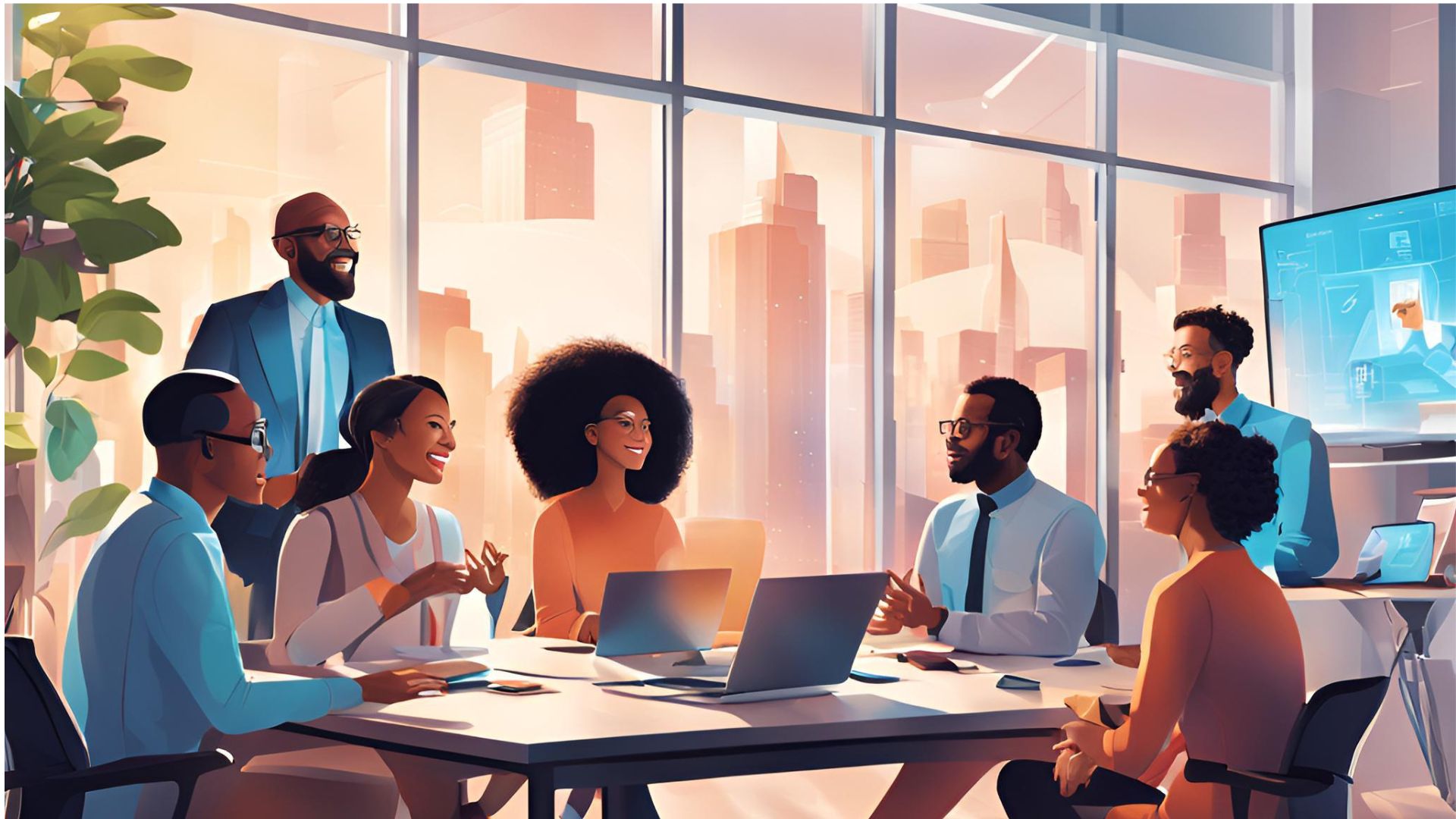
Artificial intelligence (AI) is no longer a niche technology—it’s the driving force behind a rapidly evolving economy. From automating repetitive tasks to powering predictive insights, AI is transforming industries and reshaping how businesses operate. But as the AI economy grows, it’s also creating an unprecedented demand for a new kind of workforce: one that is tech-savvy, adaptive, and ethically aware.
For companies, this shift poses a critical question: How do you build a team that thrives in a world increasingly defined by AI? Let’s explore how to recruit, retain, and prepare talent for this new era.
The Skills Businesses Need for the AI Economy
The rise of AI isn’t limited to technical roles like data scientists or machine learning engineers. It’s also creating demand for professionals who can combine data-driven decision-making with adaptability and creativity, which are skills integral to integrating AI effectively into business processes.
According to the World Economic Forum’s Generative AI Workforce Trends report, organizations that adopt AI successfully often have robust data infrastructure, governance, and training programs in place. They emphasize thoughtfully scaling AI while addressing key challenges like workforce readiness, ethical concerns, and the importance of leadership in managing change.
Key skills for the AI economy include:
- Data Fluency: Employees who can interpret data and leverage it for decision-making add tremendous value across teams.
- AI Integration Expertise: Professionals who know how to implement AI strategically and evaluate its impact effectively are essential.
- Adaptability and Upskilling: With 44% of workers’ skills expected to face disruption in the next five years, adaptability and a willingness to learn are crucial.
- Ethical Awareness: As AI adoption grows, so does the importance of addressing concerns about algorithmic bias, privacy, and transparency.
By focusing on these skills when hiring, businesses can better position themselves for long-term success in the AI economy.
Attracting the Top AI Talent
AI-related roles are in high demand, and competition for skilled professionals is fierce. Simply offering competitive salaries is no longer enough. Employers must create a value-driven recruitment strategy that appeals specifically to the aspirations and priorities of AI talent.
Here’s how to stand out:
- Promote Purpose-Driven Work: AI professionals want to see how their efforts make a meaningful impact. Highlight projects that solve real-world problems or contribute to societal good.
- Invest in Ongoing Development: With AI evolving rapidly, candidates value organizations that provide access to advanced learning opportunities. For example, offering partnerships with platforms like Coursera can demonstrate your focus on upskilling employees.
- Encourage Collaboration and Creativity: The best AI professionals thrive in environments where they’re free to innovate and collaborate across disciplines.
- Showcase Ethical Leadership: Talented candidates are drawn to organizations that take AI ethics seriously, from avoiding algorithmic bias to upholding transparency in AI adoption.
By aligning your employer brand with these values, you’ll increase your chances of attracting top-tier AI professionals.
Upskilling Your Team: Preparing for the AI Economy
Building the right workforce doesn’t always mean hiring from outside. A robust upskilling strategy can empower your current employees to work effectively alongside AI tools and adapt to changing business needs.
Here’s how to get started:
- Invest in AI Training Programs: Offer hands-on AI workshops or partner with educational platforms to provide courses focusing on practical AI applications, tailored to different roles.
- Foster Innovation Across Teams: Encourage collaboration between tech and non-tech employees to ensure AI adoption is practical and aligned with your organization’s goals.
- Support Change Management: As AI transforms workflows, provide resources and clear guidance to help employees navigate the transition positively.
According to McKinsey & Company, organizations that prioritize reskilling report higher workforce satisfaction and productivity, while also reducing turnover.
Navigating the Ethical Implications of AI in Hiring
AI isn’t just changing the skills employers look for—it’s also transforming recruitment processes themselves. Tools like AI-powered recruitment software and assessment platforms are helping companies identify top candidates quickly. However, the use of AI in hiring comes with its own challenges and responsibilities.
- Guard Against Bias: AI systems are only as unbiased as the data they’re trained on. Regularly audit your AI recruitment tools to ensure fairness and inclusivity.
- Be Transparent with Candidates: Let applicants know how AI is being used in your hiring process. Openness fosters trust and demonstrates accountability.
- Stay Compliant: Laws governing AI and employment are still evolving but remaining up-to-date on regulations will help you avoid potential legal risks.
A thoughtful approach to AI in recruitment ensures that businesses benefit from efficiency while maintaining fairness and ethics.
Staying Ahead in the AI Economy
The companies that thrive in the AI-driven future will be those that balance innovation with responsibility. Building a workforce ready for the AI economy means hiring for the right mix of skills, creating a culture of learning and adaptability, and embedding ethics into both technology and talent strategies.
By embracing these principles, your organization can stay ahead of the curve—and help shape a more sustainable, inclusive AI economy.
Partner with RecruitrLabs to Find the AI Talent You Need
At RecruitrLabs, we connect businesses with the specialized talent they need to succeed in the AI economy. Whether you’re looking for data scientists, AI engineers, or multidisciplinary thinkers, we’ll help you build the team you need to meet tomorrow’s challenges.
Contact us today to learn how we can help you build a workforce for the future.